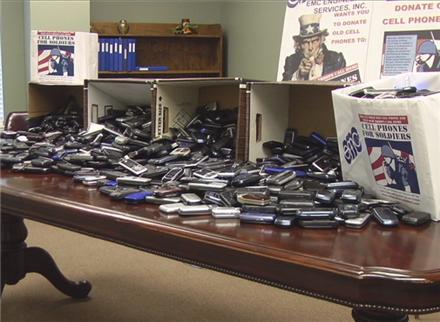 As we have written before, managed access cell phone jamming systems being tested in prisons around the world have been deployed with mixed results. In addition to requiring ongoing management and investment post deployment, they have a spotty record and not all vendor’s equipment works as advertised.
As we have written before, managed access cell phone jamming systems being tested in prisons around the world have been deployed with mixed results. In addition to requiring ongoing management and investment post deployment, they have a spotty record and not all vendor’s equipment works as advertised.
Recently, the Cayman Islands issued a report on their managed access trial. According to the report, which is discussed in the article below, “The prisons service installed a cell phone jamming device at Northward in December 2009, but the equipment has never worked properly. A large communications tower next to the prison complex, which operates most of the radio station signals in the Cayman Islands, causes signal “bleed over” that interferes with the cell phone jamming device.”
In addition, the U.K. prisons inspectorate, which recently reviewed the Cayman Islands prisons system, advised caution for entities seeking to purchase phone jamming equipment.
“Many companies make claims concerning the effectiveness of various technologies or items of equipment, but the long-term independent verification is often difficult to obtain,” said Stephen Fradley of the UK’s prisons inspectorate.
Officials with Cayman’s prisons service said they have tried their best to implement cell phone jamming technology at Her Majesty’s Prison, Northward, but funding concerns have blocked their efforts.
That is the response to a report tabled in the Legislative Assembly Monday regarding what Complaints Commissioner Nicola Williams said was a failure of the prisons system to follow her recommendations concerning prison safety and management issued in a 2011 report.
Two of the three recommendations from that report, which detailed a strip search conducted on three teenage girls at Her Majesty’s Prison, Fairbanks, were followed by government officials. The special report made public by Cayman lawmakers Monday dealt only with the third and final recommendation made by Ms Williams’s office.
Ms Williams recommended that the prison system should install phone jamming equipment at both Northward and Fairbanks “since, realistically, it is virtually impossible to stop cell phone and BlackBerry use in prisons….”
“[It] would avoid regular and repeated use of strip-searching as a means of retrieval, which could not only put both the prison and the Cayman Islands government in violation of human rights protections, but also leave both entities open to lawsuits.”
The prisons service installed a cell phone jamming device at Northward in December 2009, but the equipment has never worked properly. A large communications tower next to the prison complex, which operates most of the radio station signals in the Cayman Islands, causes signal “bleed over” that interferes with the cell phone jamming device.
That information was revealed following Ms Williams’s 2011 report on the prison service.
In a communication sent to the complaints commissioner last month, Ministry of Home Affairs chief officer Eric Bush noted the government wished to accomplish cell phone jamming at the prisons, but noted that it was unclear how government might get to that stage.
“We have not had the funding provided to purchase additional cellular jamming equipment that would satisfy your recommendation,” Mr. Bush wrote. “There are a number of security-related matters that would take priority over additional cellular jamming equipment, should an abundance of funding be allocated to the prison service.”
In addition, the U.K. prisons inspectorate, which recently reviewed the Cayman Islands prisons system, advised caution for entities seeking to purchase phone jamming equipment.
“Many companies make claims concerning the effectiveness of various technologies or items of equipment, but the long-term independent verification is often difficult to obtain,” said Stephen Fradley of the UK’s prisons inspectorate.
Mr. Fradley said the U.K. National Offender Management Service is currently evaluating an “approved contractor list” for the cell phone jamming technology.
A report from the agency on that issue was due by the end of the year, Mr. Fradley said.
The responses by the local ministry to her recommendations were simply not good enough, Ms Williams concluded
“The [Office of the Complaints Commissioner] accepts both the financial constraints of the ministry and that some efforts toward compliance have been made by the ministry with regard to the outstanding recommendation,” she said. “This falls far short of compliance.”
- Blockchain System for Compliant Inmate Transactions - March 4, 2025
- Securus Gets the Signal, Eleven Years Later - August 23, 2024
- Multi-Blockchain System for Inmate Forensics - April 2, 2024




